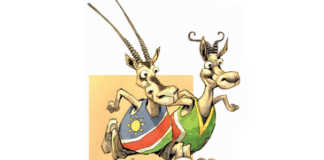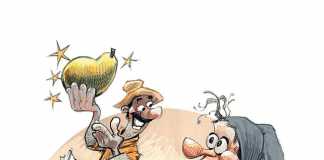South Africa’s pledge to give R40 million to Cuban farmers for seed purchases is surprising, considering how long SA’s farmers have pleaded for help from this government – to no avail. The R40 million forms part of a larger R350 million assistance package offered to Cuba by President Jacob Zuma in late 2010.
The package comprises two direct grants and a repayable loan, the latter of which has been provided at a “lowish interest rate”, said trade and industry minister Rob Davies. A condition of the R40 million grant is that R5 million (12,5%) be used to buy SA seed. This is short-sighted, considering that SA is more than capable of providing R40 million worth of seed to Cuba. The positive spin-offs for the agricultural industry would be numerous if such an order were to be placed locally. Surely it would not be too much to expect the Cubans to buy their seed here under the circumstances.
Politics above food security
Cuban agriculture is far from failing and less in need of external funding than most African countries. Weaknesses in the African agricultural sector have a greater effect on SA’s economy than any perceived needs, agricultural or otherwise, in Cuba.
According to Cuba’s agricultural department that country is a world leader in the production of biofertilisers and is a large organic food producer.
Urban food gardens have ensured that 90% of fresh produce consumed in Cuban cities originates from urban centres. Cuba is a globally important tobacco grower and a top grapefruit producer. Hardly a country that needs an African subsidy to ensure food security. So why the sizeable donation? The answer has little to do with humanity, but much to do with political payback for help, mainly of a military nature, provided by Cuba to the ANC during the years of the armed struggle.
Davies said this country was “indebted to Cuba for the sacrifices it had made during the apartheid years, especially in Angola”.
During the Angolan war in the 1970s and 1980s Cuba was instrumental in SADF troop withdrawal from Angola, and Namibia’s consequent independence. In a previous display of gratitude, SA wrote off Cuban debt to the tune of R1 billion in 2010. The importance of repaying political debts is debatable, more so when the price is too high.
Prof Pierre du Toit, political scientist at the University of Stellenbosch, said he could not see how SA would benefit from possible trade-offs. “This political payback forms part of a long tradition in the ANC of indebtedness to friends who helped them during the struggle. “The unfairness of the issue lies in the fact that SA’s emerging farmers should have first claim on revenue from SA’s tax base, not Cuban farmers.”
Emerging farmers left behind
A R40 million subsidy for SA agriculture could have an enormous impact, especially on small-scale farms where seed technology is unaffordable. Mike Mlengana, president of the African Farmers’ Association of South Africa, described the donation as “unacceptable”.
“Struggling emerging farmers can’t afford seed and fertiliser. R40 million would go a long way to train emerging farmers to be commercial or semi-commercial. We can buy land with that money or erect processing plants. This money could change the face of small farmers in SA,” he added. Government likes to point a finger at commercial farmers for not helping small-scale farmers.
How many fingers are pointing back at government, especially when it is willing to subsidise seed purchases for Cubans, but not for its own farmers? When will this debt be paid and investment in the future of our country begin? Dawie Maree, an economist at Agri SA pointed out that SA’s emerging farmers needed the R40 million far more than Cuban farmers. “Besides the money issue, the principle of giving subsidies to another country’s farmers before our own is disturbing,” says Maree. On these uneven playing fields, a R40 million subsidy to a country across the Atlantic can only leave a bitter taste.
The views expressed in our weekly opinion piece do not necessarily reflect those of Farmer’s Weekly.













